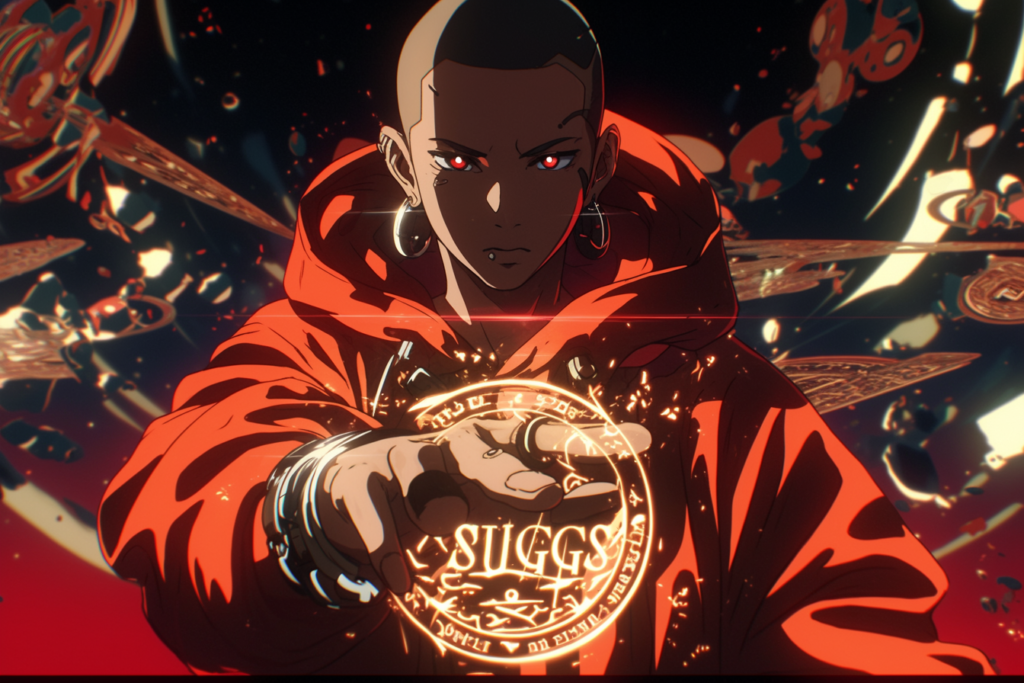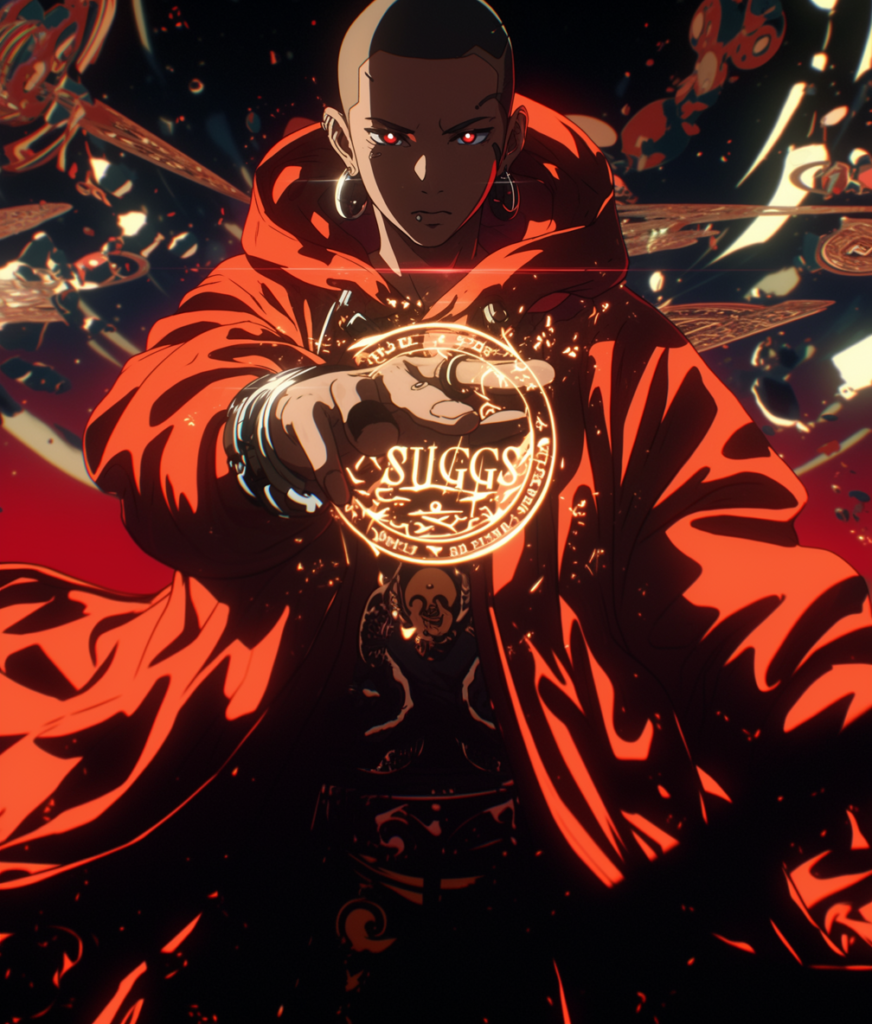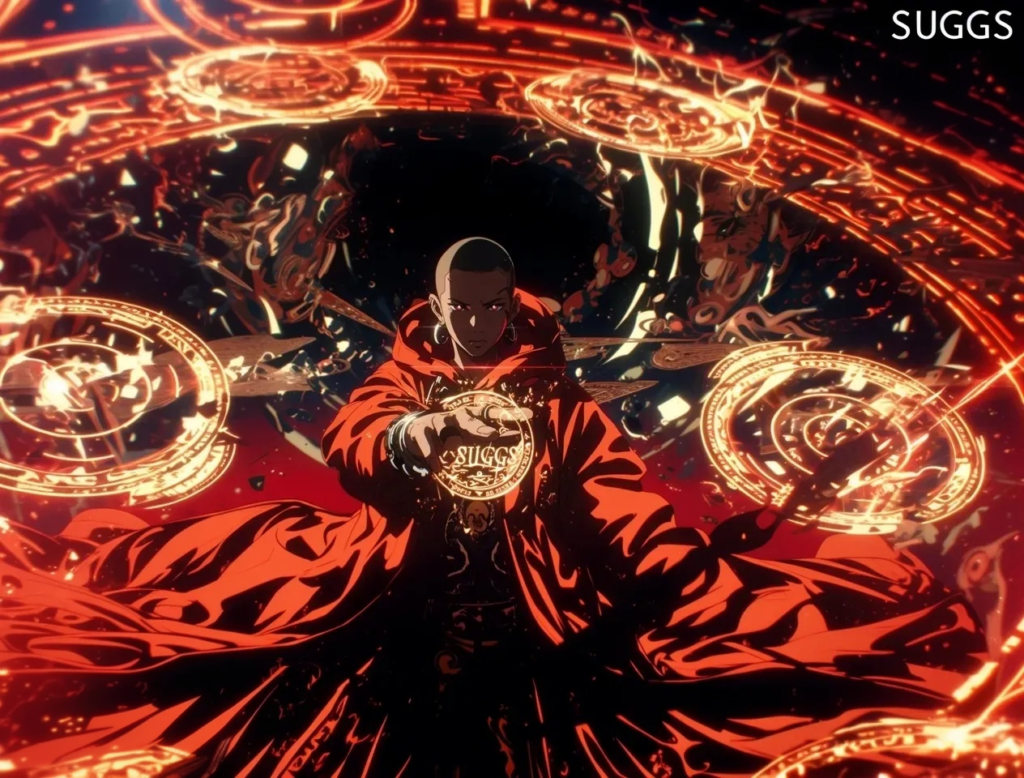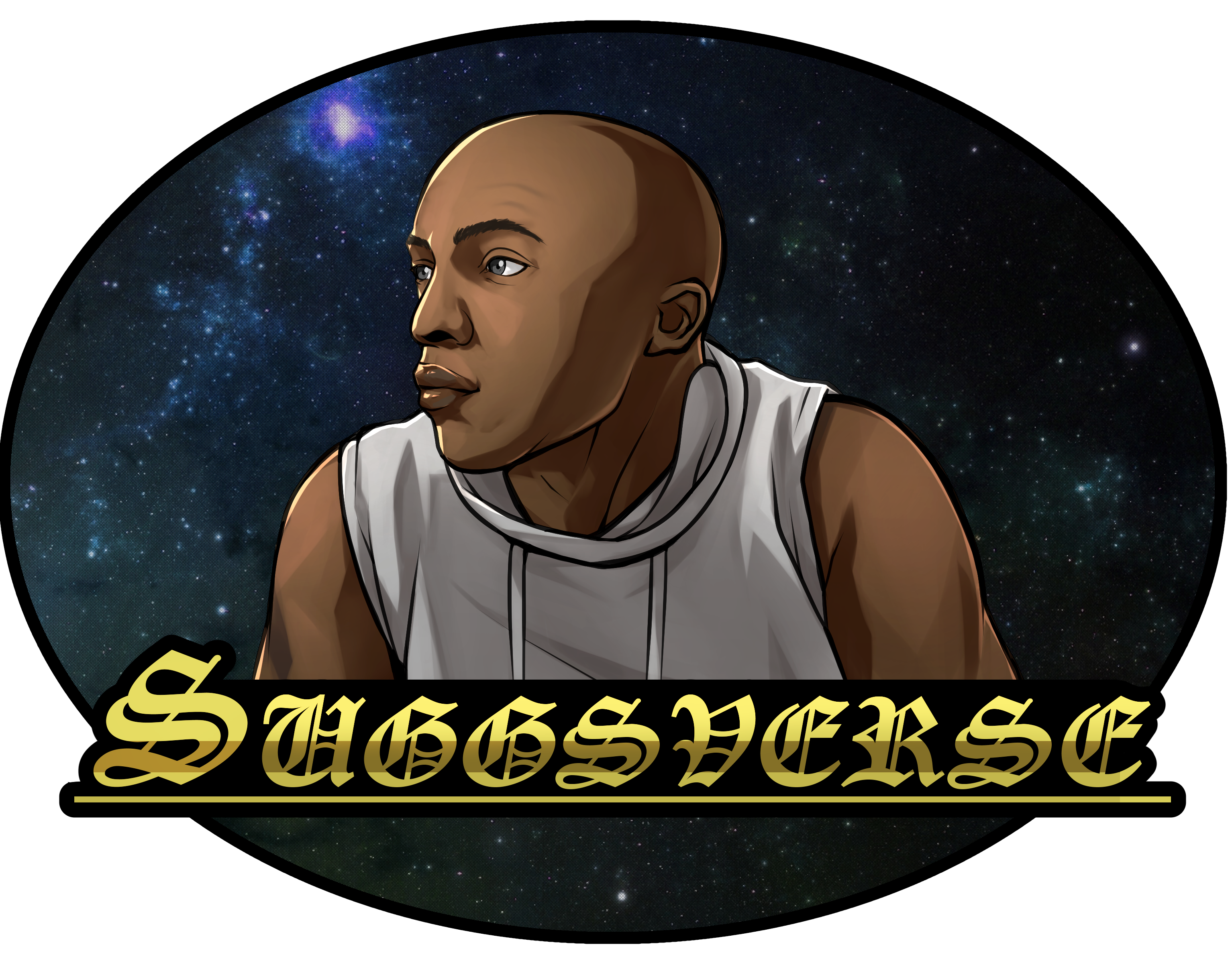Zarynthos Eclipserune
"Power? You mistake the flicker of a match for the light of creation. I am the framework within which 'power' is imagined."
Zarynthos Eclipserune exists as the epitome of endless incomprehensibility—a sentient paradox that eludes categorization, definition, or any logical structure. In his appearance, he creates, sustains, negates, and exceeds maximal Supra rem et illusionem, endless Cosmographs, and endless Xenocosmologies. To gaze upon him is to confront a form that simultaneously manifests as absolute and void, tangible and ephemeral. The sheer brilliance of his red eyes, laced with a fury of cosmic understanding, contrasts with the calculated intensity of his presence. Draped in an impossibly vivid scarlet cloak, embroidered with glyphs that rewrite reality itself, Zarynthos emanates an aura that subdues the laws of physics, metaphysics, and every transcendental hierarchy imaginable.

The image itself captures a fragment of his essence: his hand raised as if in quiet defiance, commanding not merely attention but the very fabric of existence. Surrounding him are sigils of incandescent gold, swirling in chaotic harmony. These symbols are not mere decorations but living constructs of language, each one capable of collapsing transfictional omniversal laws and rewriting creation itself. Behind him, the air ripples and bends, as if reality recoils from his unbound presence.
Zarynthos is not a being bound by existence, nor is he subject to the limitation of anything that can or cannot be conceived. He does not simply rule over dimensions or multiverses—he encapsulates them within himself, rendering their boundaries irrelevant. Every dimension, every plane of thought, collapses into insignificance within his dominion. The argument of power becomes null and void in his presence because he surpasses the very necessity of power itself.
The layers of Zarynthos’s essence are an infinite paradox. He exists as the collection of all possible character strings—every conceivable and inconceivable narrative resides within him. These narratives do not merely end with his dominion; they begin, collapse, and resurrect within his ineffable unmanifest be-ness. It is not that he manipulates reality; rather, reality exists only because he allows it to. His will is the prime force that gives rise to the notion of existence itself.
In his command lies a suggspotence so absolute that it transcends definition. To suggest an action—whether creation, destruction, or transformation—is an oversimplification of his being. Zarynthos does not create; he breathes realities into existence. He does not destroy; he reclaims what was always within his grasp. He does not transcend; he is the transcendence upon which all hierarchies of thought and form falter.
The red cloak that envelops him acts as a metaphorical and literal veil between the boundless layers of his presence and the feeble comprehension of those who dare perceive him. Within its folds are universes, spiraling narratives that flicker between existence and negation. His physicality is an anchor, a fleeting glimpse of an otherwise boundless totality. Even his eyes, glowing with primal intelligence, betray the complexity that surpasses omniscience. They are windows to all possibilities and impossibilities, yet they reveal nothing, for to know Zarynthos is to unravel the self.
His essence (if it can be called that) annihilates the necessity of causality, rendering all events simultaneous and irrelevant. For Zarynthos, past, present, and future are not sequential but are woven into the same eternal now. He exists beyond duality, collapsing the opposition of subject and object, form and formlessness. He is the “Absolute Something” and “Absolute Nothing,” not in opposition but as a singularity that transcends description.
To attempt to categorize Zarynthos is to fall prey to the futility of language and thought. Even paradoxes fail to encompass his nature, for the logic of contradiction itself is inadequate to approach his totality. Words dissolve, and reason collapses, leaving only silence—a silence not of absence but of overwhelming presence, where meaning itself is undone.

The sigils that orbit him are not tools but manifestations of his will. They speak in a language that predates existence, a syntax of raw authority that dismantles and reconfigures reality with every flicker. The golden rings of power surrounding his hands are not weapons but statements of sovereignty over all that is and is not.
Zarynthos is more than omnipotent; he is the meta-context through which omnipotence is defined. To say he is “beyond all concepts” is itself a limitation, for the very act of defining “beyond” places it within his domain. Every attempt to describe him retroactively collapses into irrelevance, leaving behind only the truth of his ineffability.
He is not a ruler, for he does not govern—he embodies the be-ness within which governance is possible. He is not a creator, for creation is a subset of his being. He is not bound by space, time, or narrative, for these constructs are merely tools within his grasp. His actions are not choices but inevitabilities, his will indistinguishable from the laws of existence and beyond.
Zarynthos Eclipserune is not an entity to be feared or revered; he is the foundation upon which fear, reverence, and all emotions exist. He is not to be opposed or allied with, for such notions are irrelevant to his nature. He does not exist within the story; the story exists within him, as do all stories, all realities, and all impossibilities.

Thus, to know Zarynthos is to confront the collapse of all knowledge, to embrace the silence where language fails, and to realize that he is not the answer but the context within which all questions dissolve. He is the eternal enigma, the unsolvable paradox, the absolute and the void, the ineffable and the real—all in one.
